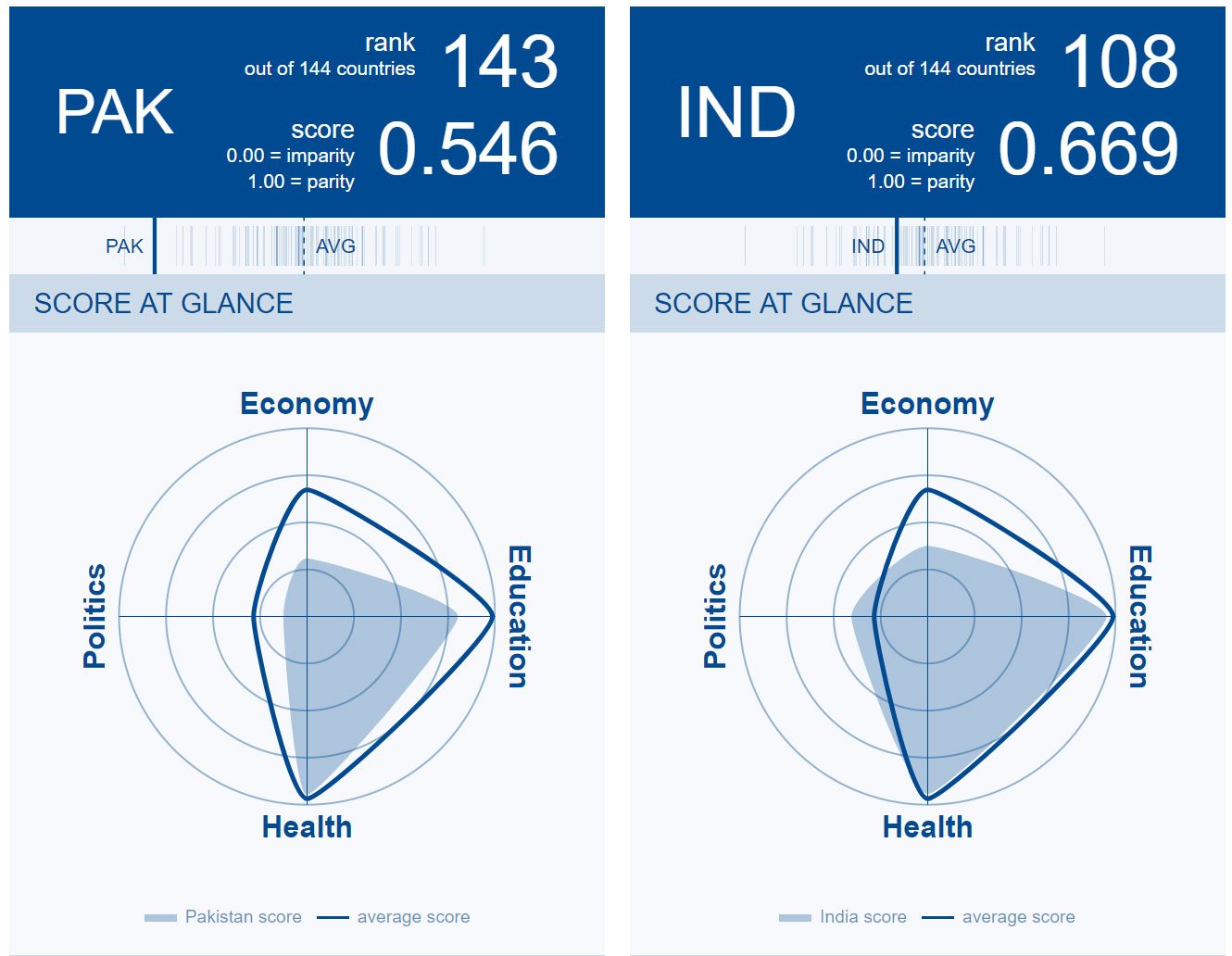The World Economic Forum placed Pakistan as the second worst country on gender equality in its Global Gender Gap index released on Thursday.
The index placed Pakistan 143rd out of 144 countries, worst in the South Asian region that has an average remaining gender gap of 34% as noted by the index. Bangladesh, ranked at 47, is the only country in the region to have made the top 50 whereas India is at 108 after dropping 21 notches compared to its previous position. Maldives ranked 106, Sri Lanka 109, Nepal 111 and Bhuttan 143.
The top 10 performing countries are Iceland – having closed nearly 88% of its gap, it has been the world’s most gender-equal country for nine years – Norway, Finland, Rwanda, Sweden, Nicaragua, Slovenia, Ireland, New Zealand and the Philippines.

Pakistan scored 0.546 on a scale where 1.0 score represents parity and 0 as imparity. The country’s female/male population sex ratio is recorded at 1.06. The index notes country’s widening the gender gap over the decade as it ranked 112 out 115 in the year 2006. In the 2017 index, Pakistan only beats Yemen and the war-torn Syria ranks ahead of Pakistan.
The index offers detailed breakdown of the rank in the following categories:
Economic participation and opportunity: 143
- Labour force participation: 139
- Wage equality for similar work: 115
- Estimated earned income: 139
- Legislators, senior officials and managers: 125
- Professional and technical workers: 122
Educational attainment: 136
- Literacy rate: 127
- Enrolment in primary education: 127
- Enrolment in secondary education: 134
- Enrolment in tertiary education: 106
Health and survival: 140
- Sex ratio at birth: 139
- Health life expectancy: 137
Political empowerment: 95
- Women in parliament: 75
- Women in ministerial positions: 139
- Years with female head of state (last 50): 28

Pakistan has shown only a slight improvement towards the educational attainment while in all other areas i.e. economic participation and opportunity, health and survival and political empowerment, it has worsened over the decade. The country ranked 135th in 2013, 141st in 2014 and 143rd in 2015, then again in 2016 and 2017.
This is how Pakistan’s comparison with India looks like:

The index notes the year 2017 as the slowest in the decade which otherwise saw progress in closing the gender gap. It notes that the decade of slow but steady progress in closing the gap came to a halt in the year 2017 with the gap looking most widened since the World Economic Forum published its first index in the year 2006.
With the current progress to closing the global gender gap stands at 68% and at this pace it will take 217 years to closing this gap.
“We are moving from the era of capitalism into the era of talentism. Competitiveness on a national and on a business level will be decided more than ever before by the innovative capacity of a country or a company. Those will succeed best, who understand to integrate women as an important force into their talent pool,” said Klaus Schwab, Founder and Executive Chairman, World Economic Forum.

No comments:
Post a Comment